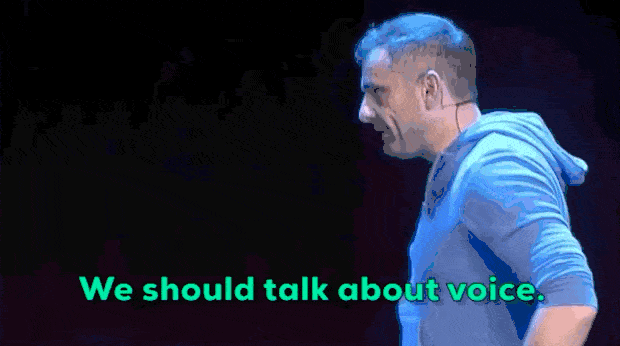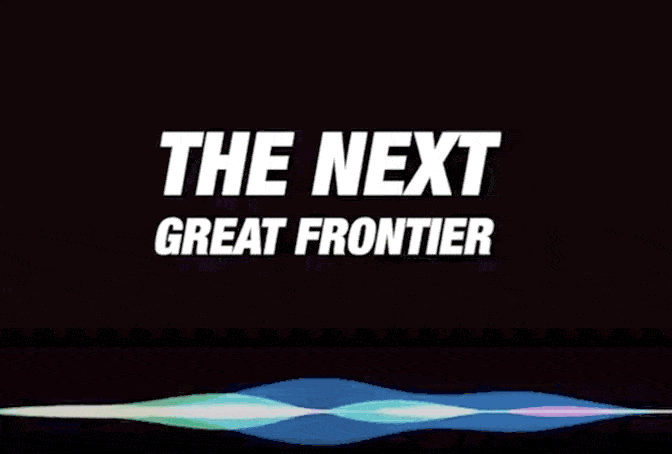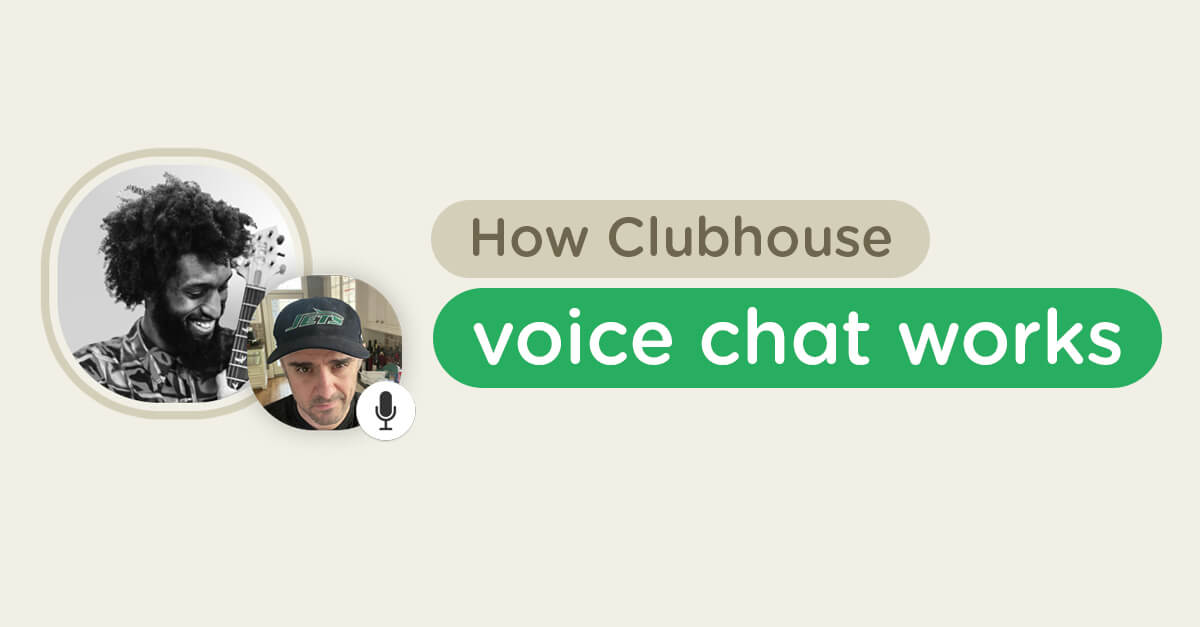By now, a lot of us know what Clubhouse app is. People often ask, “What’s next?”. I’m not psychic but I do think voice is the next feature to look out for. This is why Clubhouse is having a moment of cultural relevance and is capturing all of our attention. With this in mind, let’s take a look at it’s Voice Chat feature and the future of voice app technology.
Why Clubhouse Voice Features Matter
Not to get too heavy on all of Clubhouse’s features (we did that before in another blog) but, Clubhouse is a social, audio driven app. It has had tremendous success and that is not surprising. Why? I believe that similar to what the iPhone and the Andriod did to our society, voice devices have the potential to do, at scale, over the next decade.
For example, I believe there will be an Alexa skill built into the technology that is so phenomenal it catches virality. It’ll make everybody go, “Oh crap, I need that.” If you think back to the iPhone, a social network, Spotify, or iTunes itself–they had features that made people say, “Oh crap…”. MySpace did that for social networks and Tinder did that for dating. This happened before the 2000s as well. I remember eBay was looking for wide awareness in the late 90s and it was Beanie Babies that put so many people on eBay.
I will say this though, or I’d be remiss: although I do believe in the emerging voice technology, I think it’s still too early for anybody reading this to run home and build an Alexa skill–thinking that’s gonna change their business. People need to be thinking about how their brand plays in a voice AI environment, and a media/technology landscape that has reliance on voice features and capabilities.

You can make impactful decisions now if you want to be a part of the conversation; tap into the sonic tag for your business or brand. We need to make sonic branding, how does it engage, and how to build at scale, a part of the conversation at a briefing.
After spending the last couple of weeks understanding and tasting the platform, these are my thoughts. I like it a lot and I think it has potential for many people. I’m excited to see what it looks like when you open it up at scale; the product itself is already incredible. The lack of friction, the walkie-talkie nature, it feels like you’re sitting around a dinner table.
It reminds me of my favorite South by Southwest jam sessions, where I would sit with other entrepreneurs and just chat about random cultural events and debate which trends have staying power. It sits in a different place as a utility that has potential to evolve into a consumer product but time will tell.
What Makes Clubhouse Attractive
Now let’s talk about the psychology of users–not just on Clubhouse, but users of voice devices and voice apps in general. User psychology is important any time you’re looking to create content or position your business as a brand. If you look at the cellphone, and you look at technology, and the integration of those things in our lives, what do you think is the next step? Drones, flying cars, nanobots?
Think about it. Every single person reading this values health, the well being of their family, and time. As we become more busy, time becomes a valuable resource. Therefore, when you’re looking at a video, that is actively taking up your time. Audio, meanwhile, is incredibly passive. Think about that word–passive.
Everybody kind of passively consumes. Listening to something in the first five minutes of you waking up and getting ready, for example, that information is being passively consumed. You’re not looking at your phone because you’re in the shower. Voice app technology takes this further by allowing you to save time and passively consume. Imagine brushing your teeth in the morning. Suddenly, you remember that you need socks, so you say, “Hey Google. Hey Apple. Hey Alexa. Hey Facebook”, or whatever else has come out, “Buy me socks.” The next search engine is voice.

It’s all about saving time. Uber won because it saved you time. Amazon Prime wins because it saves you time. Anything that saves us time, we like, right? We want everything right now, always, and fast. Slow internet is devastating, right? We’ve become addicted to speed and I think voice is speed. Even if you have your phone next to you…if you can say Alexa, or Google, or Apple..What is my schedule today? Now, the house is talking to you.. it’s just faster than turning on your phone.
We hate friction. Alexa and voice is the future of a frictionless world. It is going to explode.
So, what does all this mean for Clubhouse? Why has it become more relevant in culture compared to Houseparty or Discord? The answer is Clubhouse embodies speed, real life, and passive consumption. It mirrors real life and also allows people to be a fly on the wall and listen to the conversations of others. It’s the most successful voice app we’ve seen so far because of things you might overlook. Like everything that has happened over the last 15 years with consumer apps, a couple of tweaks on the product, positioning, design, the initial community that started using it– these are all factors into the serendipity that is a successful app.
By the way, it’s no different than what happens with restaurants and clubs. Sometimes people might ask, Why did this restaurant do better than this one that opened down the street nine months ago? They were so similar...the difference of a matradee, the first 100 people that went to the restaurant, a little tweak at the bar, the product selection of the wine; these little, subtle things matter.
Additionally, I believe Clubhouse can still maintain its appeal after it’s been opened to the public and even after the pandemic. Why? Because it filters by room. It’s not like everybody on the app hears everything. So, by the filter of the rooms, I can go into the 21 Savage room or I can go into the Mark Cuban room, or the How To Save The Environment Room–I’m in control. It’s no different than what Facebook Groups do today. Or any other social network, for that matter.
The Future of Voice App Technology
I want to be clear: voice app technology isn’t Clubhouse’s only appeal. The real appeal is that it replicates real life. In real life it is very uncommon for you to just roll up to someone and start talking to them. That is very rare and that is what Chatroulette (and other voice apps) offered. Clubhouse is more similar to having a conversation at a dinner. It’s closer to a conference, or an event like the Grammy’s; you know the person, or you’re aware of the person, and you observe that person having an open dialog. Or, you could join in. Clubhouse is successful for the same reason every social platform is successful, it’s replicating an actual human truth.
In the next three years, Clubhouse will either be one of the top ten social apps in the world or overly affected by Facebook Inc, LinkedIn, Twitter, and the other platforms. By that I mean feature copying may slow down it’s macro growth and have it become a little bit more in the middle of the pack within the hundreds of top apps. Or, it’ll be integrated into one of the companies that I just mentioned through an M&A deal that happens within the next year and a half.
After all this, what does this mean for the future of voice app technology? As I’ve been screaming, yelling, screeching, preaching,pontificating, roaring, and crusading for the past however many years: voice is a passive consumption product. It is why the car radio was remarkably powerful. You could listen to it while you did something else. Humans are now multitasking at a level that makes our great-grandparents headspin. This makes voice an incredibly important pillar of human society and I believe that it will continue to grow in importance.












Order Viagra 50 mg online: Fast Pills For Men – sildenafil 50 mg price
Cialis without a doctor prescription buy cialis online Generic Tadalafil 20mg price
Generic Tadalafil 20mg price: Max Pills For Men – Cheap Cialis
online erectile dysfunction cheap cialis ed prescription online
discount ed pills FastPillsEasy ed medications cost
http://casinositeleri25.com/# Canl? Casino Siteleri
sweet bonanza kazanma saatleri: sweet bonanza kazanma saatleri – sweet bonanza slot
https://casinositeleri25.com/# en guvenilir casino siteleri
slot oyunlar? puf noktalar? slot oyunlar? guvenilir slot siteleri
https://slotsiteleri25.com/# en kazancl? slot oyunlar?
https://slotsiteleri25.com/# en cok kazand?ran slot oyunlar?
yeni deneme bonusu veren siteler deneme bonusu veren yeni siteler yeni deneme bonusu veren siteler
sweet bonanza yorumlar: sweet bonanza oyna – sweet bonanza slot
https://casinositeleri25.com/# guvenilir casino siteleri
deneme bonusu veren yeni siteler denemebonusuverensiteler25 yat?r?ms?z deneme bonusu veren siteler
yeni deneme bonusu veren siteler: deneme bonusu veren siteler yeni – yat?r?ms?z deneme bonusu veren siteler
en cok kazand?ran slot oyunlar? slot casino siteleri slot oyunlar? puf noktalar?
Tham gia ngay Rbviet.net Rbesports để tận hưởng cá cược esports chuyên nghiệp, với hệ thống bảo mật hàng đầu, giao dịch siêu tốc và hàng loạt ưu đãi dành riêng cho bạn. – 2025 March 28, 15:24
Rayesports.com Rayesports là nền tảng cá cược thể thao điện tử hàng đầu, mang đến trải nghiệm đặt cược trực tiếp cho hơn 10 tựa game đỉnh cao như LMHT, Dota 2, CS:GO, Valorant, PUBG… – 2025 April 04, 11:27
Cam kết minh bạch và an toàn, Rbviet.net Rbviet hợp tác cùng các giải đấu esports lớn, đảm bảo hệ thống cá cược công bằng và giao dịch chính xác, nhanh chóng. – 2025 April 11, 10:24
Профессиональный сервисный центр по ремонту бытовой техники с выездом на дом.
Мы предлагаем:ремонт крупногабаритной техники в москве
Наши мастера оперативно устранят неисправности вашего устройства в сервисе или с выездом на дом!
54% Typeform Discount Code for extra savings.
85% Off ifax coupon
49% off collect chat coupons
69% discount on using Clickmagick coupon
host havoc promo code
interserver coupon code
shockbyte promo code
Save $775 on LALAL.ai plan
Claim75% off coupon today.
Get 50% discount on SE Ranking.
Here’s everything you need to know about saving with SE Ranking promo codes.
Here are a few verified Jenni AI coupons that can help you save instantly:
Below are some of the latest EverBee coupon codes you can use to get discounts on your plan:
In this article, you’ll find the latest KDSPY promo codes, how to use them, and why KDSPY is worth every penny for self-publishers.
Popular Hostinger Coupon Codes for Domain Renewal
Discount: 20% Off Educative Sitewide Discount
Here are a few popular Typeform coupon codes and deals available right now:
Get 80% off plus an extra 10% off on Web Hosting, VPS, Domains, and more with our exclusive coupon for Hostinger India.
Boost your content creation with Blaze.ai and save 25% using our exclusive coupon codes! Blaze.ai is an AI tool that helps businesses and content creators quickly produce high-quality blogs, social media posts, and marketing copy.
Boost your content creation with Blaze.ai and save 25% using our exclusive coupon codes! Blaze.ai is an AI tool that helps businesses and content creators quickly produce high-quality blogs, social media posts, and marketing copy.